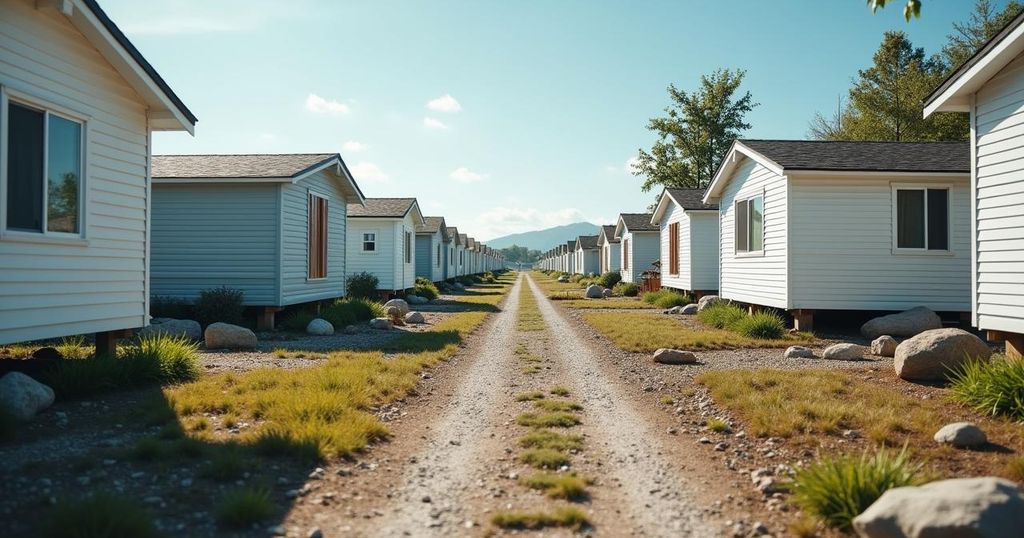The Rising Risk of Climate Disasters for Mobile Home Residents

Climate disasters are increasingly threatening the lives of millions of Americans living in mobile and manufactured homes, particularly impacting low-income populations. The tragic experience of Joe Rogers during Hurricane Helene illustrates the dangers associated with these living conditions. There is an urgent need for targeted policies and assistance to improve the safety and resilience of these communities as climate change intensifies the occurrence of such disasters.
The rise of climate disasters has exacerbated the precarious situation of millions of Americans residing in mobile and manufactured homes. These homes, often occupied by low-income and vulnerable populations, are at an increasing risk during extreme weather events. As exemplified by the harrowing account of Joe Rogers during Hurricane Helene, the consequences can be tragic. With floodwaters rising and the structure of his mobile home collapsing, Mr. Rogers experienced a devastating loss when his wife, Sandra, could not escape in time. The structural instability and inadequate protection of mobile homes in the face of climate-related disasters highlight the urgent need for policy changes and assistance programs to safeguard these communities. This issue emphasizes the growing urgency surrounding climate adaptation strategies to support the most affected populations.
The vulnerability of mobile homes to natural disasters has become more pronounced with the increasing frequency and severity of climate events. Many mobile home residents lack the resources for adequate insurance coverage and disaster preparedness, leaving them exposed in emergencies. In this context, the interplay between socio-economic status and environmental resilience significantly affects outcomes during disasters. As climate change continues to intensify weather patterns, it is imperative to focus on how local, state, and federal governments can respond to the needs of this marginalized segment of the population.
In conclusion, climate disasters pose a formidable risk for individuals living in mobile and manufactured homes, particularly for those who are economically disadvantaged. This situation necessitates immediate attention and action from policymakers to create better protective measures and assist these vulnerable communities. Without such intervention, the impacts of climate change will only continue to jeopardize the lives of millions across the United States.
Original Source: www.nytimes.com







